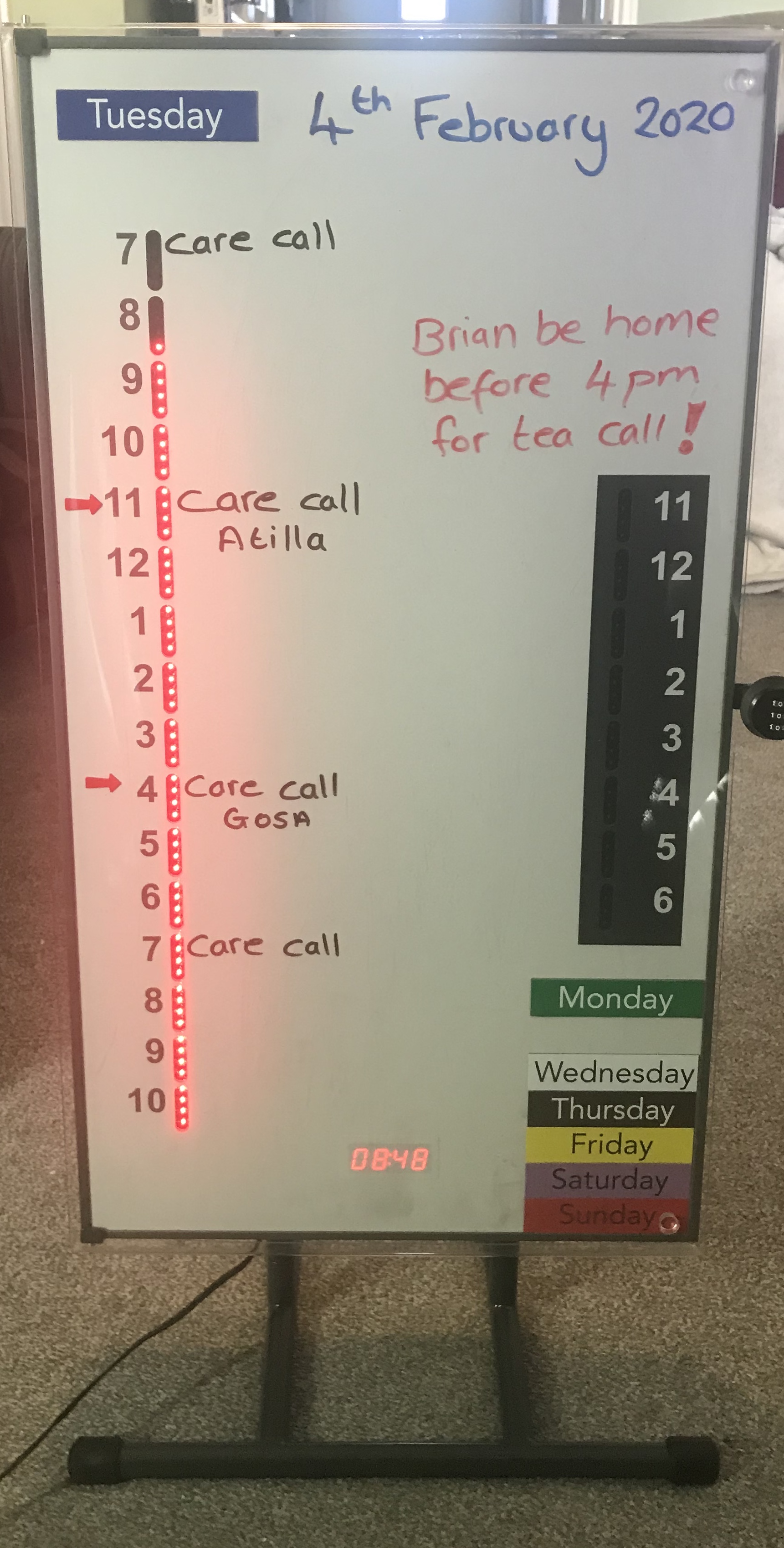Brian is 77 years old and lives on his own in a flat in Huntingdon. He is well supported by his sister who lives in Norfolk and she makes regular visits to help her brother. She often calls him and remind him of any appointments and to take his medications. But the long journey is difficult, and she has her own health complications making it harder for her to support her brother as much as she would like to.
Brian’s sister contacted the duty team within the Local Authority older peoples team raising concerns regarding Brian´s health and welfare. She told them that Brian was having several falls, he regularly misses medical appointments and was not at home when his care workers visited. She wanted to discuss the option for moving Brian into supported living.
|
|
The duty team felt that it was important to take into consideration that Brian has a strong sense of independence and is keen to retain this as much as possible.
Therefor it was arranged for Brian to have a trial of MEMOdayplanner to help him keep track of his appointments and set reminders around visits and care times. MEMOdayplanner is a planning board that shows time in a concrete way, shows how long it is to the next activity, it reminds him of any appointments that he may have or when he can expect any visitors. The carers ensured that it was updated daily by adding who was coming and when along with any appointments for the day.
After careful consideration it was decided that a move to supported living is not necessary. MEMOdayplanner has enabled Brian to remain well and healthy in his own home. Retaining his independence enables Brian to continue to access the community and maintains his social interaction with his care workers which in turn has reduced the risk of isolation.
|



